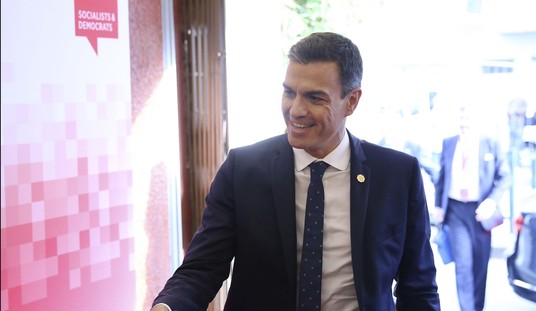While conservatives have been nearly unanimous in calling for the end of the Washington slush fund known as the Export-Import Bank, Congress will clearly remain under a lot of pressure from powerful business interests. The authorization for the bank is due to expire at the end of this month, so no real action is required to make it go away beyond simply doing nothing. Given how that’s what Congress is usually best at, this sounds pretty easy, but one major employer has begun leveling threats as to what will happen if they don’t get to keep the scheme in place.
Jeffrey Immelt, chief executive of General Electric Co., is playing hard ball with congressmen such as Jeff Duncan of South Carolina. Caught in the crossfire are more than 3,000 GE jobs in Greenville.
Immelt is among the U.S. business leaders who want Congress to re-authorize the Export-Import Bank of the United States.
That arm of the federal government finances export deals of American companies, including some of the overseas sales of the power turbines that GE designs and makes in Greenville…
Like some other Republicans, Duncan thinks export financing is generally a matter for the private sector, not the federal government. He voted against re-authorizing the bank in 2012, setting aside objections that the United States shouldn’t abandon the program when so many other countries have their own versions.
With the deadline for bank re-authorization approaching again, opponents and proponents are battling it out. Immelt raised the stakes on Wednesday, saying GE would move U.S. jobs to Canada or Europe rather than lose business for a lack of export financing.
Immelt’s remarks were delivered at The Economic Club in Washington, DC and he was taking the same line we usually hear from Boeing. (The airplane manufacturer remains the largest beneficiary of the bank’s largesse with your tax dollars.) And the sad part is that, in a perfect world, there’s actually an argument to be made for some of the benefits of the program. Any time we can manage to increase our exports without giving away the ranch to other nations, that represents a net gain here at home in terms of jobs and injecting some juice into the domestic economy. Helping foreign buyers arrange financing achieves those goals.
But the flaws and potential pitfalls in the system are simply too big to ignore. First of all, Ex-Im was supposed to be giving a leg up to small businesses who want to expand their markets overseas. The reality quickly became something very different though, with some of the largest corporations scooping up most of the benefits. Also, there is the question of potential defaults. It’s true that the bank has a fairly good track record when it comes to customers making good on their debts, but in the event that one of them doesn’t the American taxpayer is on the hook for covering the losses. This creates an exposure for us in the event that a sudden, dramatic economic downturn which hits large portions of the industrial and developing world could result in many more defaults. The entity being “saved” in a case like this isn’t the US government… it’s a private business which should be responsible for shouldering their own risks.
There’s nothing technically illegal about what Immelt is doing here, but it’s pretty disreputable. Working to influence public policy is one thing, but issuing clear threats which involve chopping the legs out from under American workers if you don’t get your way is something else entirely. The only remaining question is if this will work and Congress will cave to GE’s demands.








Join the conversation as a VIP Member